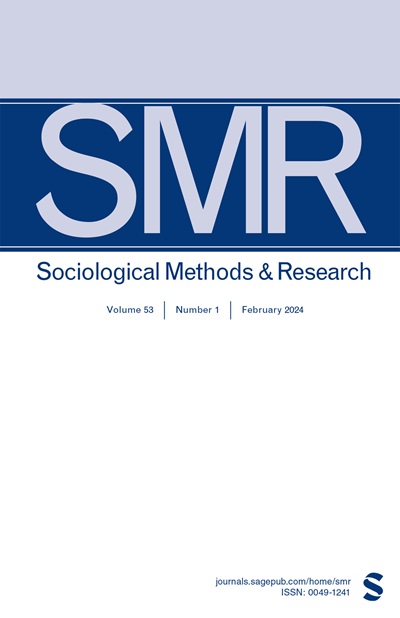The Unrealized Potential of Audits: Applicant-Side Inequalities in Effort, Opportunities, and Certainty
IF 6.5
2区 社会学
Q1 SOCIAL SCIENCES, MATHEMATICAL METHODS
引用次数: 0
Abstract
Randomized audits and correspondence studies are widely regarded as a “gold standard” for capturing discrimination and bias. However, gatekeepers (e.g., employers) are the analytic unit even though stated implications often center on group-level inequalities. Employing simple rules, we show that audits have the potential to uncover applicant-side inequalities and burdens beyond the gatekeeper biases standardly reported. Specifically, applicants from groups facing lower callback rates must submit more applications to ensure an eventual callback, have fewer opportunities to choose from, and face higher uncertainty regarding how many applications to submit. These results reflect several sequential and cumulative stratification processes “real-world” applicants face that warrant attention in conventional audit reporting. Our approach can be straightforwardly applied and, we show, is particularly pertinent for employment relative to other institutional domains (e.g., education, religion). We discuss the methodological and theoretical relevance of our suggested extensions and the implications for the study of inequality, discrimination, and social closure.未实现的审计潜力:申请人在努力、机会和确定性方面的不平等
随机审计和函电研究被广泛认为是捕捉歧视和偏见的“黄金标准”。然而,守门人(如雇主)是分析单位,尽管所陈述的含义往往集中在群体层面的不平等上。采用简单的规则,我们表明审计有可能发现申请人方面的不平等和负担,而不是标准报道的看门人偏见。具体来说,来自回调率较低的群体的申请人必须提交更多的申请,以确保最终的回调,他们的选择机会更少,并且在提交多少申请方面面临更大的不确定性。这些结果反映了“现实世界”申请人面临的几个顺序和累积分层过程,这些过程在传统审计报告中值得注意。我们的方法可以直接应用,并且我们表明,与其他机构领域(例如,教育,宗教)相比,我们的方法特别适用于就业。我们讨论了我们建议的扩展的方法和理论相关性,以及对不平等、歧视和社会封闭研究的影响。
本文章由计算机程序翻译,如有差异,请以英文原文为准。
求助全文
约1分钟内获得全文
求助全文
来源期刊

Sociological Methods & Research
Multiple-
CiteScore
16.30
自引率
3.20%
发文量
40
期刊介绍:
Sociological Methods & Research is a quarterly journal devoted to sociology as a cumulative empirical science. The objectives of SMR are multiple, but emphasis is placed on articles that advance the understanding of the field through systematic presentations that clarify methodological problems and assist in ordering the known facts in an area. Review articles will be published, particularly those that emphasize a critical analysis of the status of the arts, but original presentations that are broadly based and provide new research will also be published. Intrinsically, SMR is viewed as substantive journal but one that is highly focused on the assessment of the scientific status of sociology. The scope is broad and flexible, and authors are invited to correspond with the editors about the appropriateness of their articles.
 求助内容:
求助内容: 应助结果提醒方式:
应助结果提醒方式:


